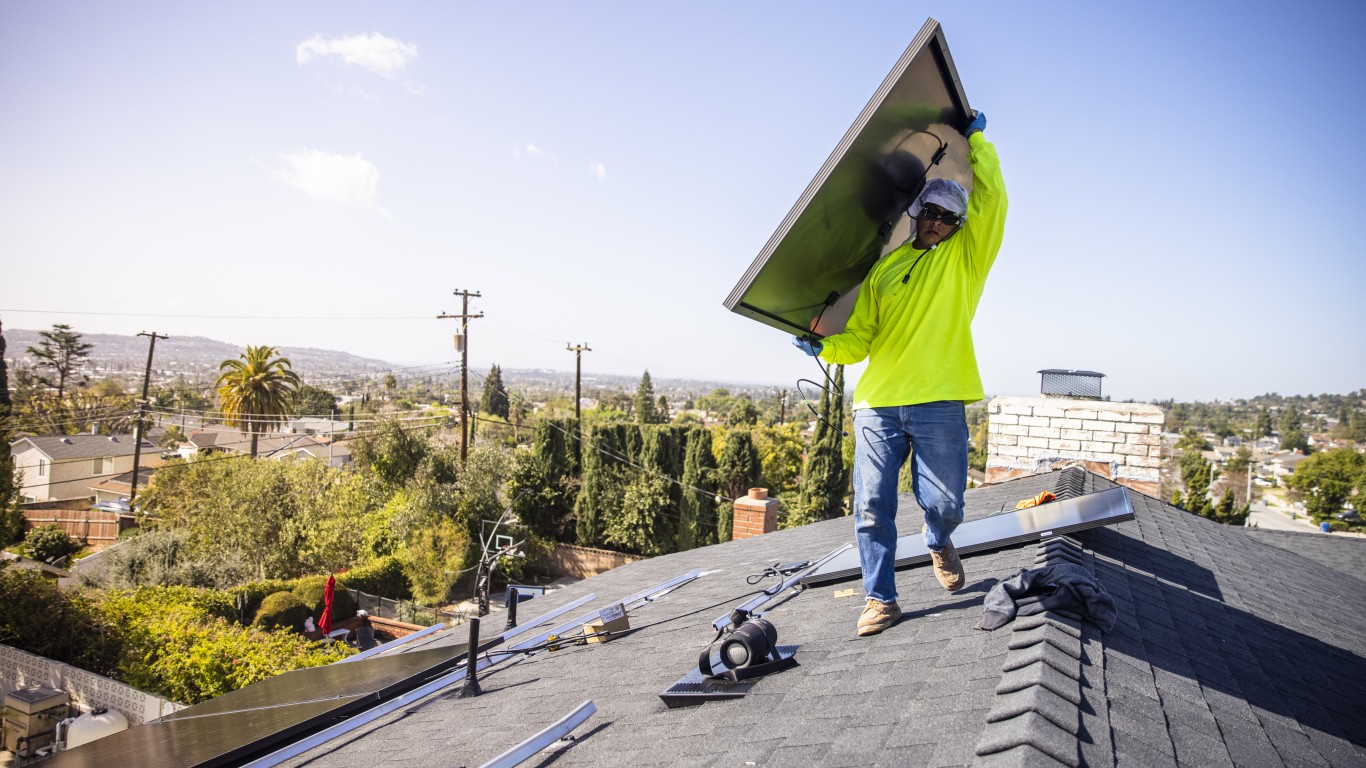
Homeowners can claim energy efficient tax credits if they haven’t claimed them already. There are two types of energy efficient tax credits that taxpayers can claim – the Energy Efficient Home Improvement Credit and Residential Clean Energy Credit. Both of these credits are available to homeowners, including renters and owners of second homes, for qualifying improvements to their primary residence.
Energy Efficient Tax Credits – How Much Can You Get?
The Energy Efficient Home Improvement Credit or EEHIC is available to taxpayers for making qualified improvements to their home after January 1, 2023. Homeowners can get 30% of qualified energy efficiency improvements with a maximum of $3,200.
Components that qualify for the credit under EEHIC are:
- Exterior doors, windows and skylights.
- Central air conditioners.
- Heat pumps, biomass stoves, boilers and water heaters.
- Natural gas, propane or oil water heaters.
- Natural gas, hot water boilers, propane or oil furnaces.
- Insulation and air sealing materials or systems.
- Home energy audits of a main home.
Visit this link to find out more about the components that qualify for the credit under EEHIC.
Qualifying homeowners can get up to $1,200 for energy property costs and certain energy efficient home improvements with a limit on individual components. For instance, the credit limit is $250 per door and $500 total, $600 is the credit limit for windows, while for home energy audits the credit limit is $150.
Similarly, homeowners can qualify for $2,000 per year for qualified biomass stoves, biomass boilers and heat pumps. It must be noted that labor costs related to the qualified components don’t qualify for the credit.
The EEHIC credit is nonrefundable, which means taxpayers can’t get back more in credit than they owe in taxes. Also, the excess credit can’t be applied to future tax years.
Taxpayers need to file Form 5695, Residential Energy Credits Part II with their tax return to claim the credit.
Residential Clean Energy Credit – What Is It?
The Residential Clean Energy Credit or RCEC, is available to taxpayers who invest in clean energy projects for their main home. Clean energy investments include solar, wind, geothermal, fuel cells or battery storage.
Additionally, taxpayers can claim the credit for qualifying improvements made to a second home they live in part-time, provided it’s not used as a rental property and the credit is not for fuel cell property. It must be noted that taxpayers can’t claim credit for a home located outside of the U.S.
Taxpayers can claim RCEC equaling 30% of the cost of qualified clean energy property installed anytime from 2022 to 2023. The clean energy equipment that qualifies for the credit are wind turbines, battery storage technology, solar electric panels, geothermal heat pumps, solar water heaters and fuel cells.
Visit this link to get more details on the qualified expenditures under RCEC. Similar to EEHIC, RCEC is nonrefundable as well.
To claim RCEC, taxpayers need to file Form 5695, Residential Energy Credits with their tax return.
This article originally appeared on ValueWalk
Take This Retirement Quiz To Get Matched With An Advisor Now (Sponsored)
Are you ready for retirement? Planning for retirement can be overwhelming, that’s why it could be a good idea to speak to a fiduciary financial advisor about your goals today.
Start by taking this retirement quiz right here from SmartAsset that will match you with up to 3 financial advisors that serve your area and beyond in 5 minutes. Smart Asset is now matching over 50,000 people a month.
Click here now to get started.
Thank you for reading! Have some feedback for us?
Contact the 24/7 Wall St. editorial team.

